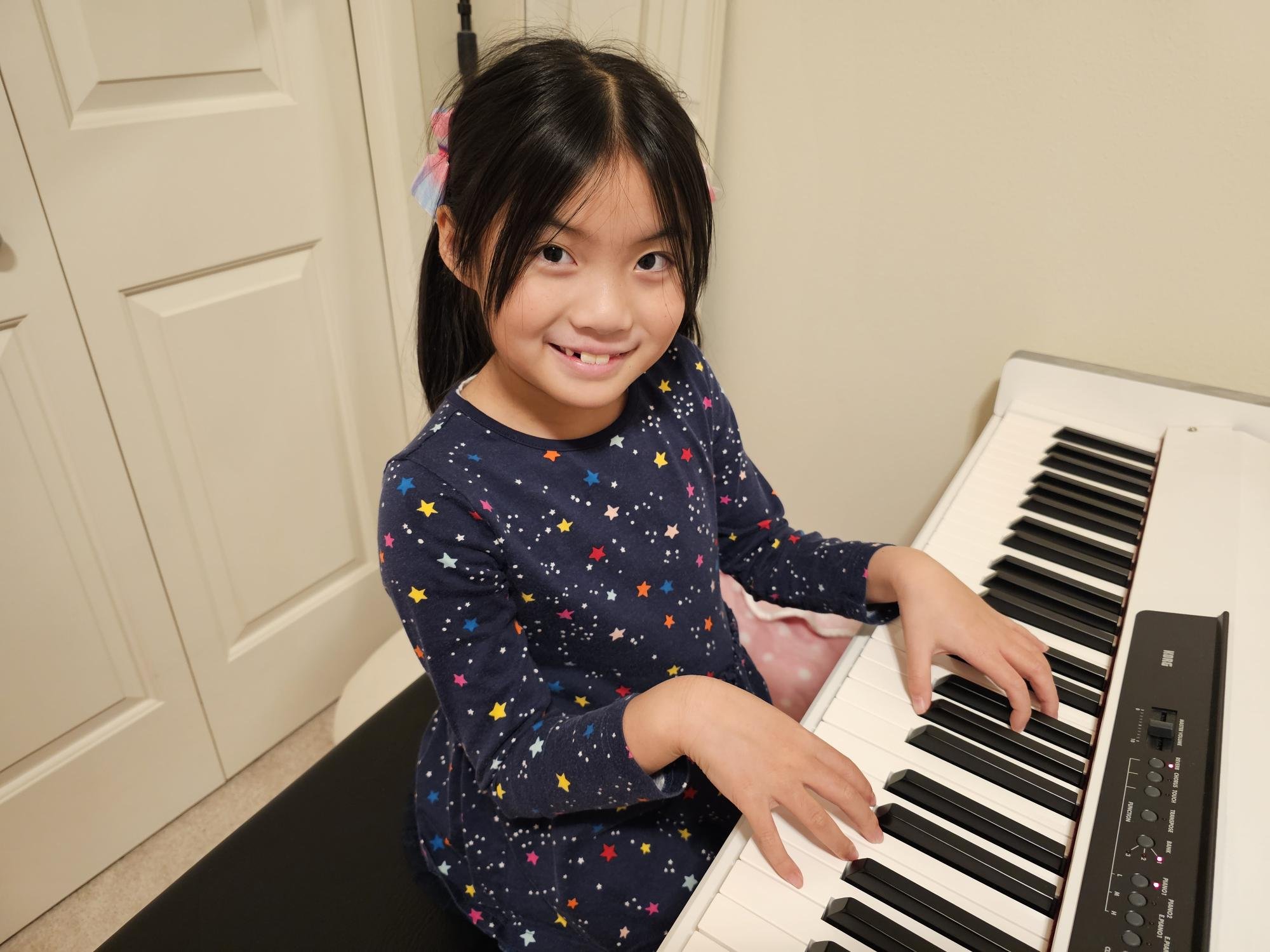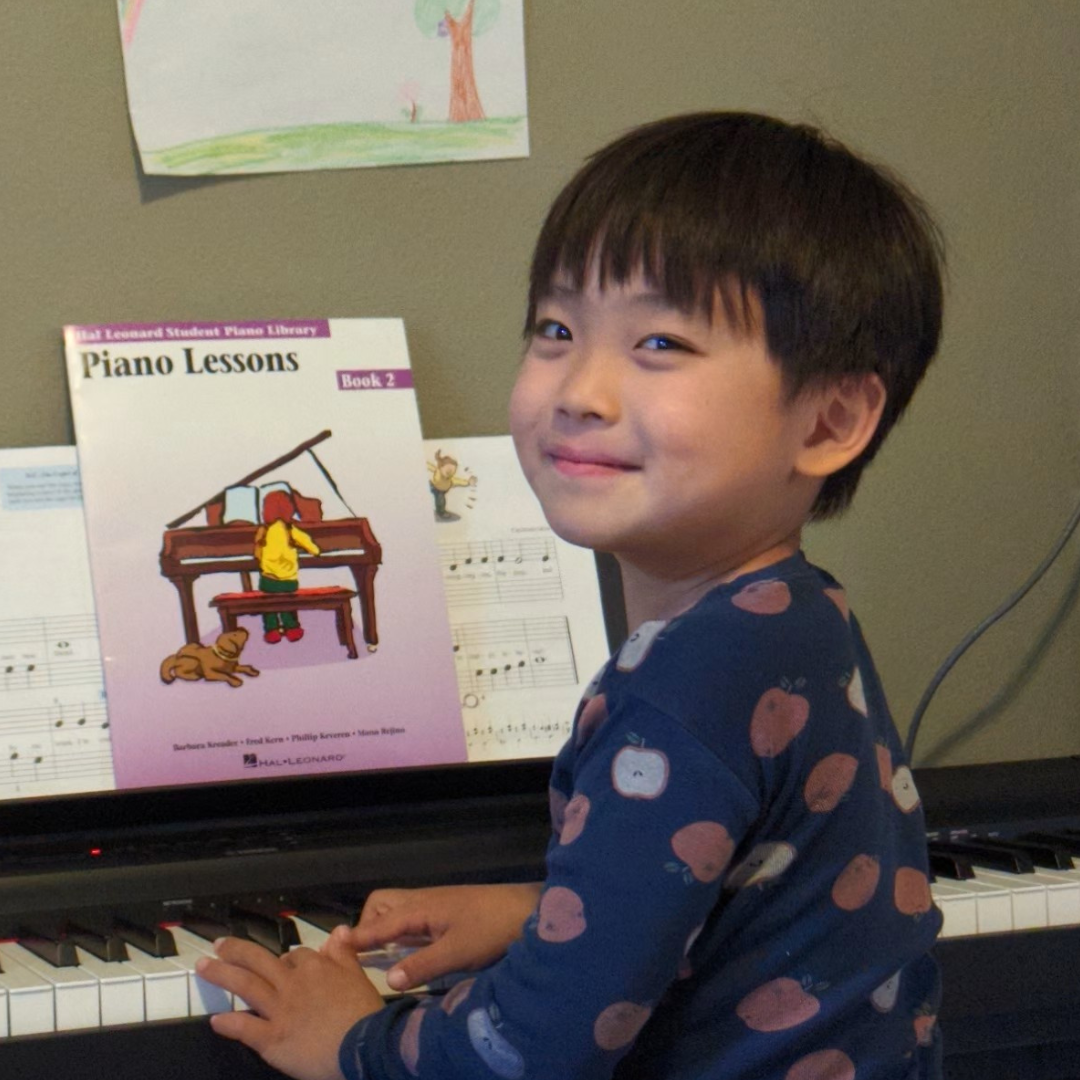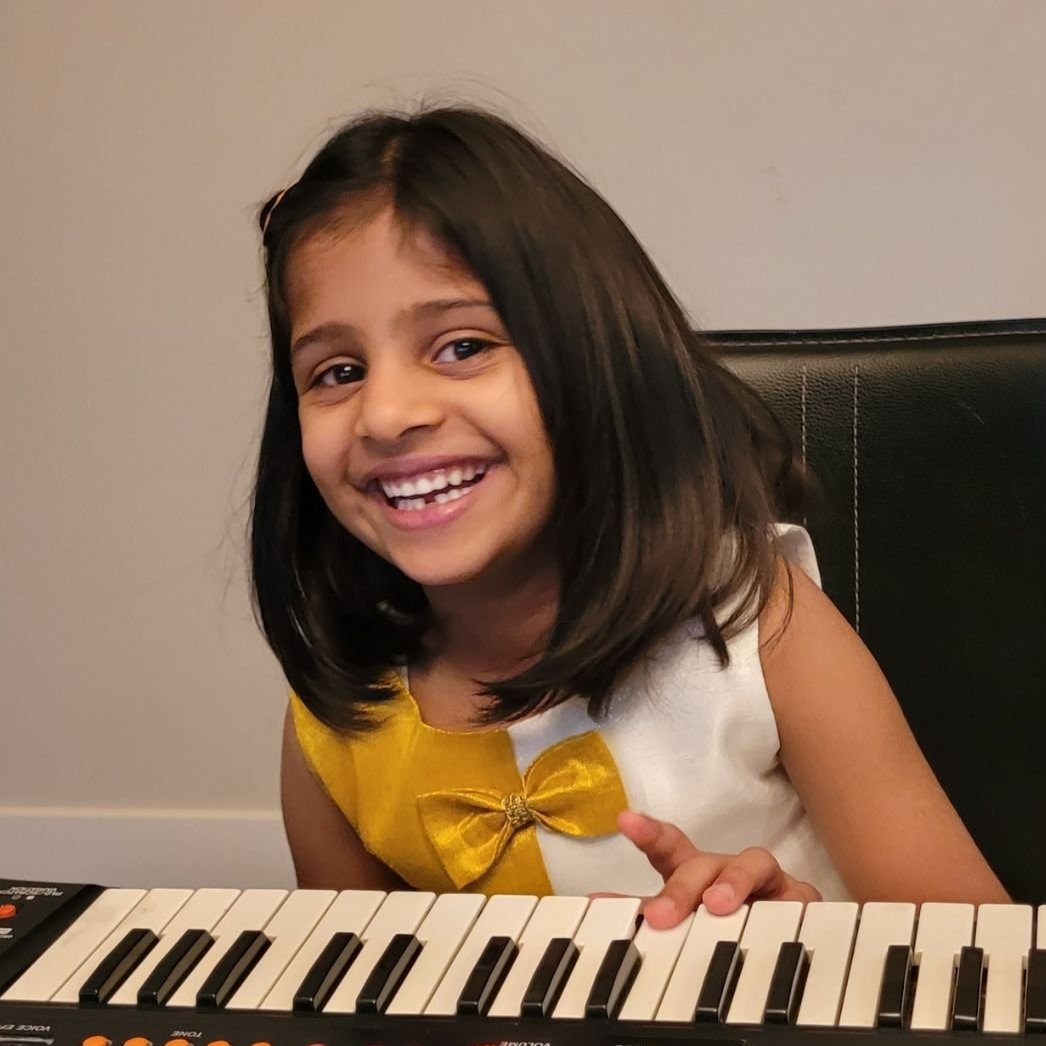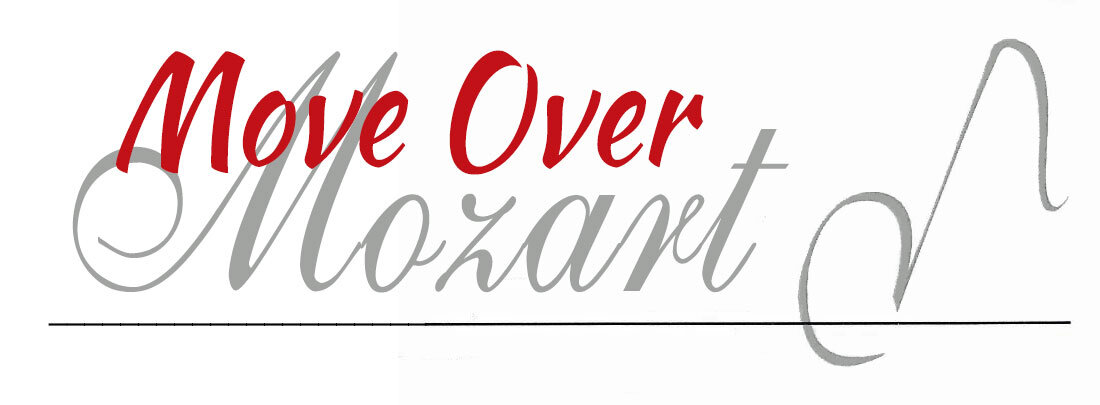




Mozart’s Memos
Want an article about something specific? Now you can search with keywords. Try, “practice technique,” “piano purchase,” or “piano tuner” to get specific articles about a topic.

Teaching Music To Students With Autism - Mozart’s Monthly Memo-Volume 34
This Memo includes
Feature Article: Teaching Music to Students With Autism
Student Hall of Fame
Practice Tip
Parents Ask Pam - In the beginning piano program, is it all self-study or does the student ever check in with a teacher?
Feature Article - Teaching Music To Students With Autism
Children with Autism Spectrum Disorder seem to thrive and do very well in a musical lesson, and I wanted to showcase some examples in this article. However, in my research, I found very little difference between planning a lesson for a neurotypical child versus a child with any other learning challenge. With any student of any age, you plan a lesson that will motivate and excite the student while using their own learning style. Because every individual is different, teachers tend to use several learning styles when planning a lesson to a group.
What is the best way to teach a student a new concept?

Music Theory - Is It Necessary? - Mozart’s Monthly Memo-Volume 33
This Memo includes
Feature Article: Music Theory - Is It Necessary?
Student Hall of Fame
Practice Tip
Parents Ask Pam - I’m concerned because when I read the description for the in person class it made it sound like we didn’t need a piano at home to take the class. I’m finding this seems to not be the case. I’m concerned because we are a low income family and just don’t have access to rentals and a piano. Nothing against you or the class I’m just wondering if this is doable without a piano or keyboard at home?
Feature Article: Music Theory - Is It Necessary?
When I mention the term “music theory”, the words “scary”, “boring”, and “unnecessary” are popular responses. After all, many great artists have been said to know nothing about theory. This is a presumptuous statement. They may never have been trained or went to school for it, but they certainly know what they are doing! Some understand it internally at an early age and others enlist help to achieve this.
Theory isn’t only about reading music and staffing notes on paper. Theory is also about understanding what is going on in music. Hearing how notes are put together in a key signature to create melodies and songs. Recognizing patterns and associating songs that use similar formulas. This can be done without hours of studying or the “boring” stuff you’ll never use. It can be done using the music you’re already listening to and writing!

Music Engagement - Food For The Brain - Mozart’s Monthly Memo-Volume 32
This Memo includes
Feature Article: Music Engagement - Food For The Brain
Student Hall of Fame
Practice Tip
Piano Party - July 9
Parents Ask Pam - We would like to get a piano/keyboard for our child to practice on at home. What do you suggest?
Feature Article: Music Engagement - Food For The Brain
You’ve heard of the “Mozart Effect”? The idea that listening to Mozart’s music can boost your intelligence? This study came out in 1993, was a big sensation at the time, and has since been debunked. Turns out listening to classical music does increase your spatial reasoning abilities for a short time, but what really makes the difference is engaging with music, you know, like playing an instrument.
“‘ . . . making music matters’ because it is only through the active generation and manipulation of sound that music can rewire the brain.” . . .
. . .But what does this mean to you and your children? Are you able to help your child practice an hour every day so they can be more intelligent? Do you even have the time? And if you don’t, have you failed?

Is An Acoustic Piano Necessary? - Mozart’s Monthly Memo-Volume 31
This Memo includes
Feature Article: Is An Acoustic Piano Necessary?
Student Hall of Fame
Practice Tip
Piano Party - June 3
Parents Ask Pam - Your classes at the community center are full. What other options do you offer?
Feature Article: Is An Acoustic Piano Necessary?
Do you really need a piano or is a keyboard good enough? . . . .
Vladimir Horowitz, a famous Russian-American classical pianist, once said “the piano is the easiest instrument to play . . . and the hardest to master . . .” The “easiest to play” part is why I love to teach children. Children get immediate satisfaction from creating and imitating music that is beautiful. But what is Horowitz talking about when he says, “hardest to master”?

